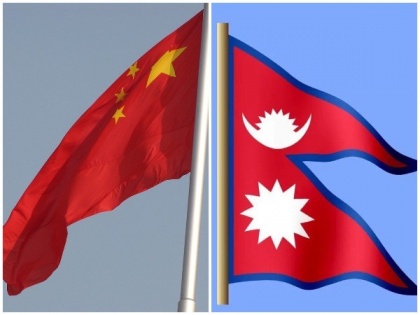Confusion grips Nepal's diplomatic circles after China unilaterally places projects under Belt and Road Initiative: Report
By ANI | Published: July 2, 2023 01:01 PM2023-07-02T13:01:05+5:302023-07-02T13:05:03+5:30
Kathmandu [Nepal], July 2 : China's statement that the Pokhara International Airport is its flagship project in Nepal under ...

Confusion grips Nepal's diplomatic circles after China unilaterally places projects under Belt and Road Initiative: Report
Kathmandu [Nepal], July 2 : China's statement that the Pokhara International Airport is its flagship project in Nepal under the Belt and Road Initiative (BRI) came as a surprise. Since then, confusion has gripped Nepal's diplomatic circles after China is unilaterally listing one project after another in Nepal under the Belt and Road Initiative, Nepal-based The Kathmandu Post reported.
China made the claim at the inauguration of the new airport by Nepal Prime Minister Pushpa Kamal Dahal, Nishan Khatiwada wrote in The Kathmandu Post report. On June 22, Chinese Ambassador to Nepal Chen Song in a post on Twitter wrote, "Warm congratulation to Wechat Pay Cross-board Payment Service Inauguration in Nepal. A new step forward in financial connectivity, one of the five "connectivities" under #BRI initiative."
While addressing the House of Representatives on Monday, Nepal's Foreign Minister NP Saud said, "The project implementation plan of the BRI is at a stage of discussion between Nepal and China. Not a single project in Nepal under the BRI has been executed. The project implementation plan of the BRI is still under consideration," The Kathmandu Post reported.
The relations between China and Nepal have of late become a saga of an exchange of words where one side claims that a specific project is under the BRI while the other side says it is not. According to foreign policy experts, the confusion will not serve Nepal.
Khadga KC, professor at the Department of International Relations and Diplomacy of Tribhuvan University, said that Beijing might have listed the projects to demonstrate increasing engagement between the two nations. KC said that the regional and global always want to demonstrate their clout in other nations to showcase their sphere of influence.
Meanwhile, Sundar Nath Bhattarai, the executive chairman of the Kathmandu-based think-tank China Study Centre said, that part of the reason for the confusion is Nepal's lack of negotiation skills and its unwillingness to hold negotiations with Beijing, The Kathmandu Post reported. Bhattarai further said that Nepali officials' public denial of China's claims have been causing controversies and don't serve the national interest.
Following the framework agreement between Nepal and China on Belt and Road Initiative in 2017, Nepal had initially chosen 35 projects to be implemented under it. Later, the total number of projects was reduced to nine and the list did not include the Pokhara airport, which Beijing has now placed under BRI.
In 2016, the Nepal government signed a USD 215 million soft loan agreement with China for building a new airport in Pokhara without any mention of the BRI. As China has been placing its projects in Nepal under the Belt and Road Initiative, the two nations have not overtly agreed on whether the BRI projects will be loan-based or grant-based.
Even though Nepal has been asking for grants, the then-Chinese ambassador to Nepal Hou Yanqi on April 22 said that the BRI will include both grants and commercial loans, the report said. She further said that many projects that China is developing in Nepal fall under the BRI initiative.
Meanwhile, Nepal's Ambassador to China Bishnu Pukar Shrestha in a recent interview said that the BRI has been wrongly compared to the MCC. Shreshtha said, "Why is the BRI being compared to the MCC? It is not mentioned in the BRI framework agreement that China will provide us grants. Its main motive is to increase global connectivity."
Some foreign experts believe China's propensity to list each project under BRI might erode its diplomatic credibility. Geja Sharma Wagle, a foreign affairs expert, said, "Either the Chinese are diplomatically naive or they are employing propaganda diplomacy. Whatever it is, it is their business. But it is eroding their diplomatic credibility," The Kathmandu Post reported.
Experts said that a quick clarification on the matter is needed as listing projects under the BRI and denying it later will not help anyone. As per the report, Bhattarai said, "It is in the interest of both the countries to sort out the confusion over which projects fall under the BRI and which do not at the earliest."
Disclaimer: This post has been auto-published from an agency feed without any modifications to the text and has not been reviewed by an editor
Open in app